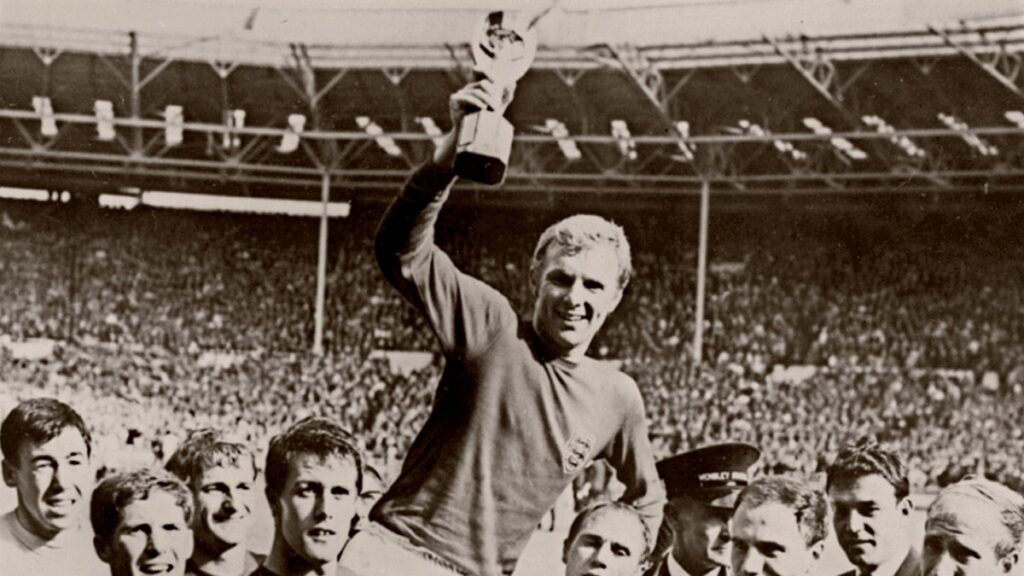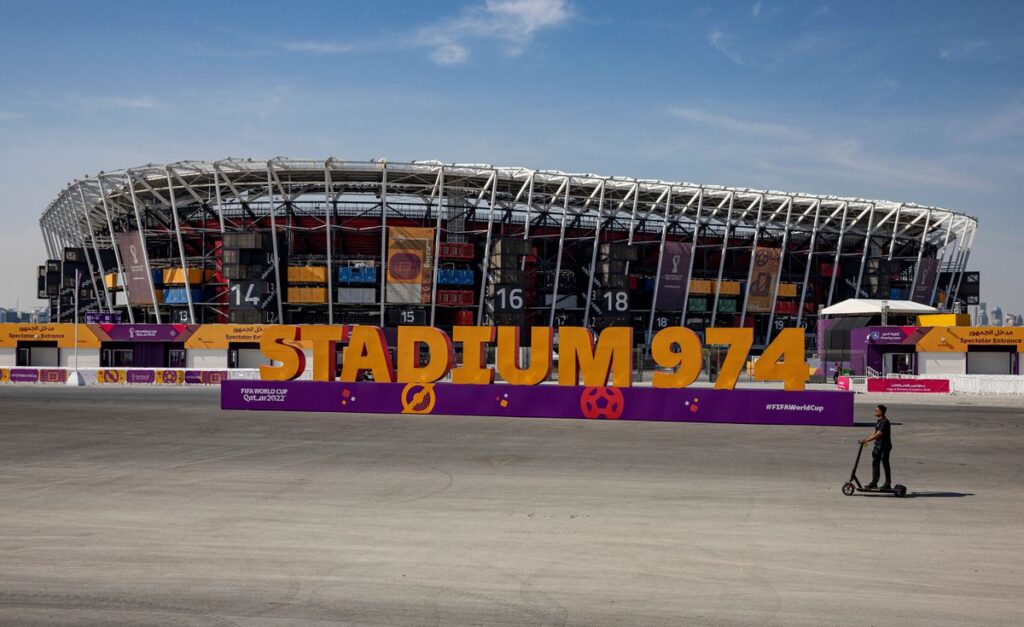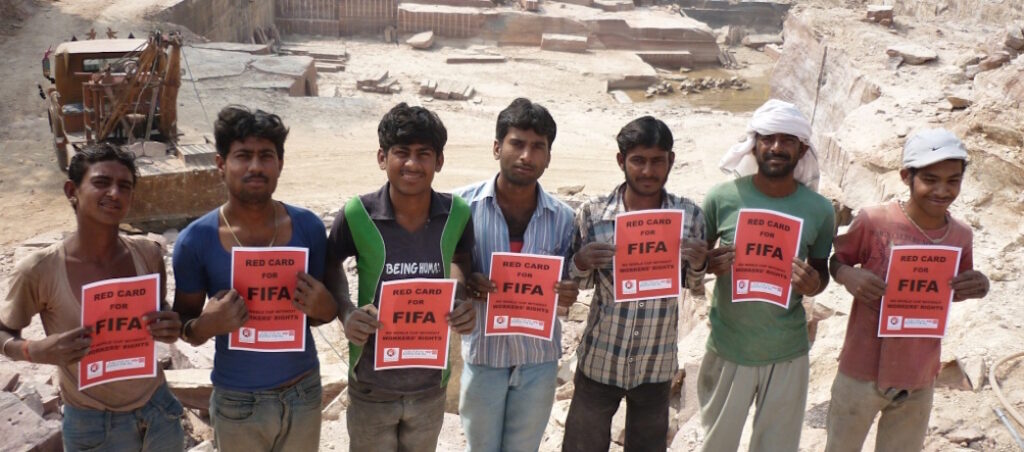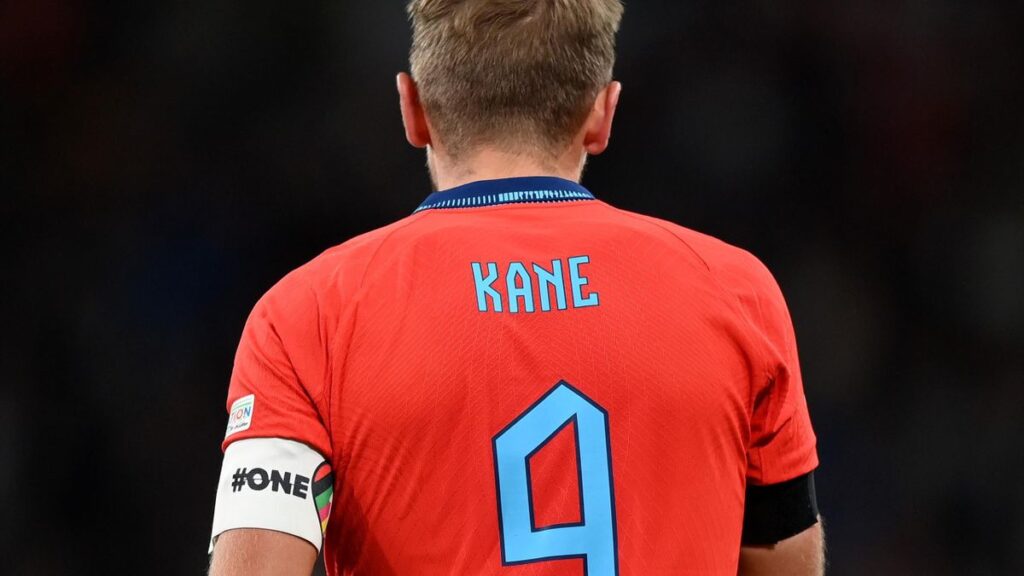I love the football World Cup. I can tell my life story by World Cup tournaments. I can tell you where I was living, whom I was living with, how many children I had and what job I was doing according to when, and where, the World Cup was held. And who won it.
I love the World Cup despite the pain it has caused me as an England fan. As I was only six, England’s win in 1966 lies on the edge of my memory, but I still feel the ache of Mexico in 1970, when, in the quarter final, England lost 3-2 to West Germany after being 2-0 up with 20 minutes left.

Argentina’s Maradona tore me apart in Mexico 1986. First by his cheating with the ‘hand of god’ and then by his waltzing through the England team to score one of the greatest goals ever. England lost 2-1, but what really hurt was that we almost equalized in the dying minutes. Then there was Italia 1990, losing in the semi-final, on penalties, to West Germany. England lost again on penalties to Argentina in 1998 and Portugal in 2006, games we should have won. Russia 2018 saw another England semi-final defeat, despite being a goal up, this time 2-1 against Croatia. England’s tragic footballing history of if only…
Rights and wrongs
I love the World Cup, but this time, Qatar 2022, I am not so sure. Partly it’s because this World Cup is in winter. To complain about this is very Euro-centric. After all, for South American, Australasian and many African teams the World Cup has always been in winter. But this is the first time that the final is a week before Christmas.
A big part of why I am not sure is because Qatar is a repressive regime. Authoritative regimes have hosted the World Cup before – Mussolini’s fascist Italy in 1934, and Argentina’s military dictatorship in 1978. Many were uncomfortable with Putin’s Russia in 2018, but Qatar’s regime seems particularly oppressive and brutal.
There are many reports of violations of labour rights and abuse of the migrant workers who have built the World Cup stadiums. Data from Bangladesh, India, Nepal, Pakistan and Sri Lanka suggest that 6,500 migrant workers from those countries have died in Qatar since 2012. Qatar strongly disputes those claims, pointing to its cooperation with the International Labour Organisation and improved working practices, such as introducing a minimum wage and abolishing the ‘kafala’(sponsorship) system, which some employers used to takeaway workers’ passports and stop them from changing jobs. However, Qatar made these reforms only after most stadiums were finished. The minimum wage of around €275 a month, plus a food allowance of about €2.50 a day, is also very low in a rich country with an average income of €60,000 a year and no income tax. Although the ‘kafala’ has gone, most workers still need their employers’ approval to change jobs.

Qatar has strict press censorship and women need the permission of men to do most things, including to marry and work. Qatar also has harsh anti-LGBTQ+ laws. Same-sex activity is punishable by up to seven years in jail. For Muslims the penalty could be death. Fears of mistreatment by Qatari security forces has prompted many gay football fans to boycott the tournament. The Qatari government says that all fans are welcome ‘without discrimination’. LGBTQ+ football fans remain sceptical, especially when, in an interview on German television, ‘World Cup ambassador’, former Qatari international footballer Khalid Salman, described homosexuality as a ‘damage in the mind’.
Power games
Some see Qatar’s hosting of the World Cup as ‘sportswashing’, essentially using sport to improve its negative reputation and point to Qatar’s purchase of French football club, Paris Saint Germain, in 2011 as another example. But organising a World Cup is a much more ambitious and expensive venture than buying a football club, especially for a small desert country with no football infrastructure. Others suggest that Qatar’s main reason for hosting the World Cup is security. In 2021, Qatar’s military spending was€11.5 bn, around 4.8% of its GDP. Qatar worries about its large, powerful neighbour Saudi Arabia, the only country with which it shares a border. Qatar, the home of Al-Jazeera news, had sharp differences with the Saudis over the Arab Spring in 2011. Saudi Arabia is also unhappy about Qatar’s relations with Iran, Egypt, Syria, Palestine, Libya and Yemen and led a boycott of Qatari airspace between 2017 and 2021.Hosting the World Cup makes Qatar visible to the world and the world more sympathetic to Qatar. The World Cup was not a sporting decision for Qatar, but a politically strategic one.
Qatar may feel that it has been unfairly criticised despite the many concessions it has made to host the World Cup. But it is the nature of authoritarian regimes to blame ‘others’. Evidence is strong that too little regard has been given to the human cost of preparing Qatar for the World Cup, and that Qatar is paying lip-service to LGBTQ+ rights. Football fans should respect that Qatari law and custom disapprove of public displays of affection but banning the ‘Pride’ flag and trying to control what consenting adults do in private is coercive and unacceptable. No country is perfect, but if you invite the world to your home because you want its support, then you must accept the world as it is.
Fouls by FIFA
Rather than being a celebration of diversity and cultures based on common love of football, the 2022 Qatar World Cup has become a divisive, tainted, hollow, cynical and spoiled event. Responsibility for that lies with FIFA, football’s world governing body that awarded the World Cup to Qatar.

FIFA will earn billions from the Qatar World Cup and has turned a blind eye to all the controversies surrounding it. In an arrogant letter, FIFA told the 32 competing teams to ‘focus on the football’. Ten European football associations replied that ‘human rights are universal and apply everywhere’. There will be other protests. Denmark will wear a ‘toned-down’ all-black strip to demonstrate against Qatar’s human rights’ record. Australia’s squad has released a video urging Qatar to abolish its laws on same-sex relationships. England’s Harry Kane and nine other captains of European teams will wear ‘One Love’ armbands to promote diversity and inclusion.
While all of this is important, none of it should be necessary. Setting aside allegations of corruption, in a pure footballing sense FIFA has betrayed the sport and its fans, many of whom face moral dilemmas about whether to go to Qatar, or even watch the football on television. Football is not more important than human rights but, despite being unsure about it, I will probably watch the tournament with a very heavy heart and a sense of hypocrisy. I love the World Cup, it maps out my life story, but this World Cup has left me feeling lost and alone in the desert.



